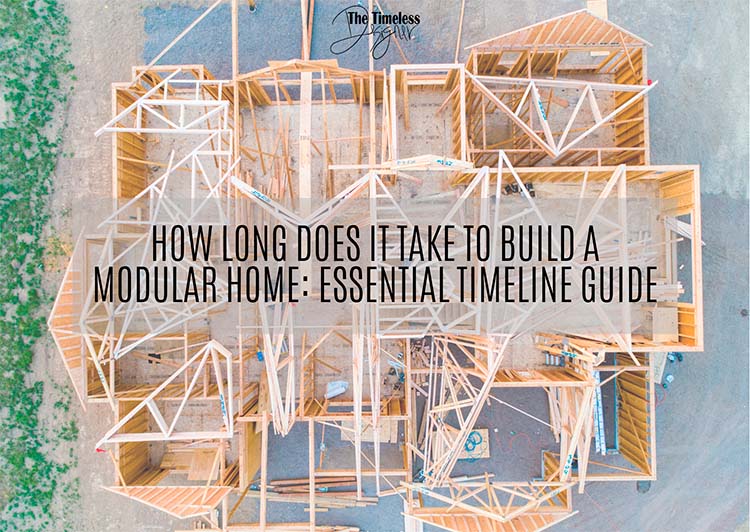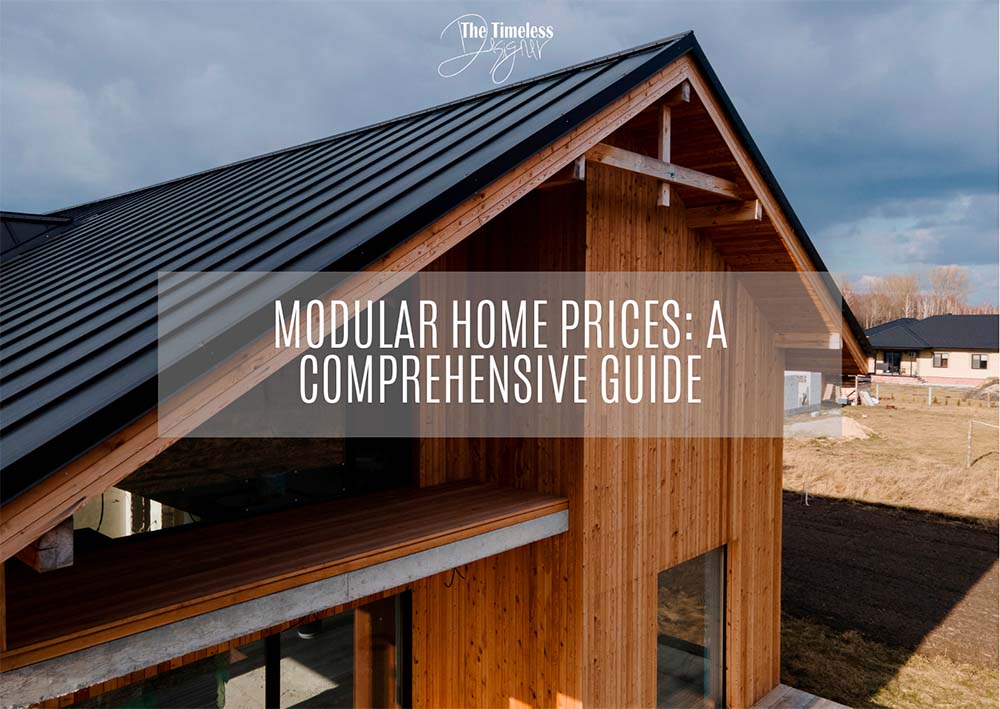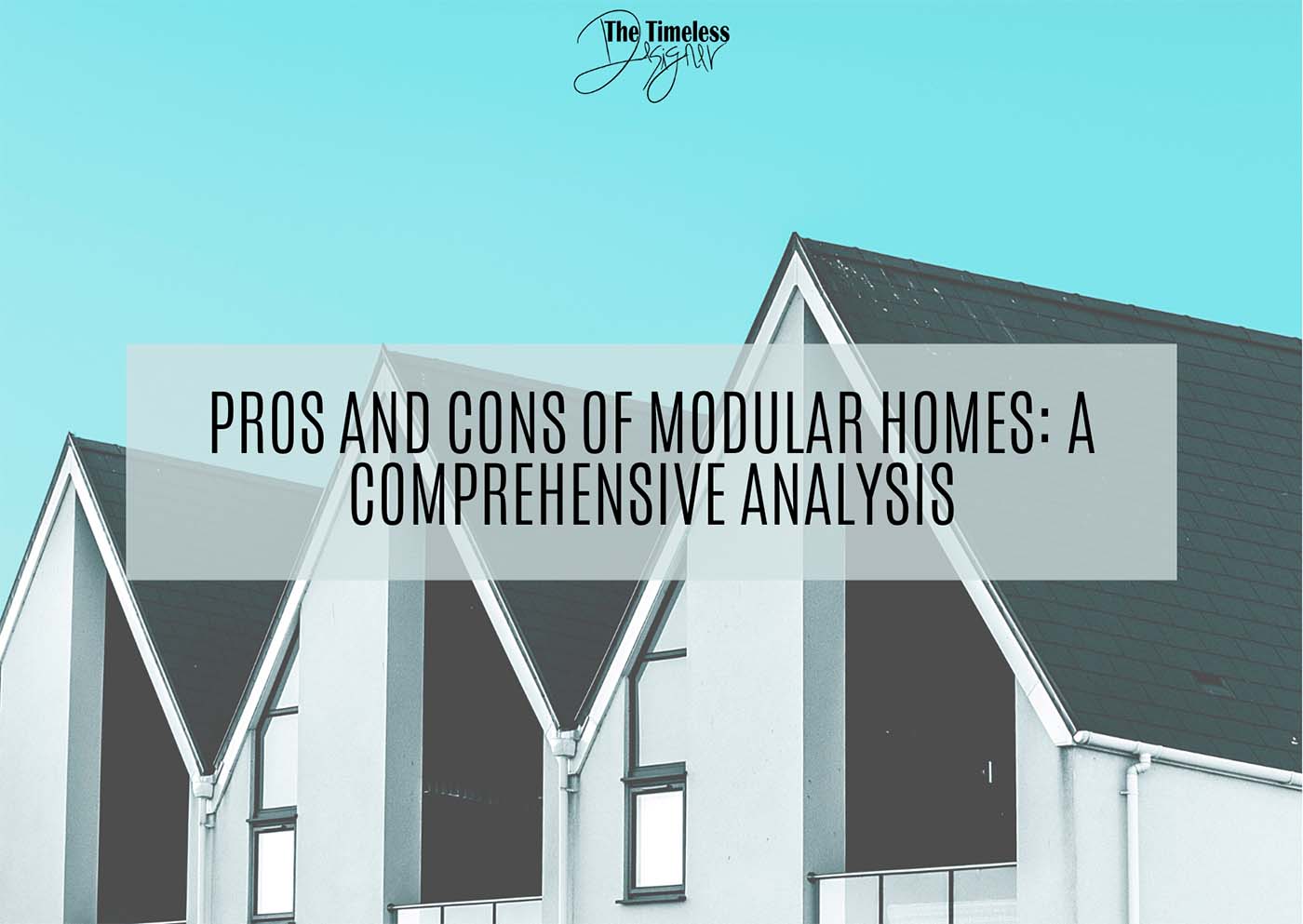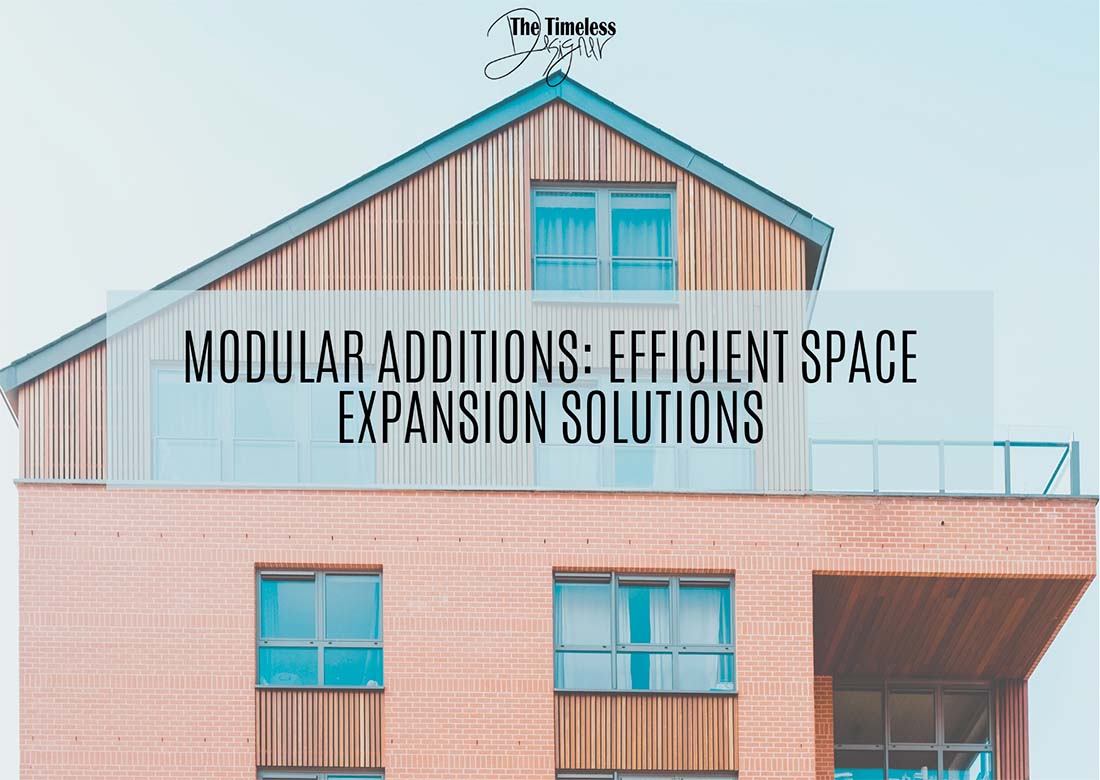Navigating the world of home buying can often feel like trying to solve an intricate puzzle. If you’re looking for a solution that marries convenience, affordability, and customization, modular homes might just be your answer.
In this essential guide for 2023, we will answer the popular question: what are modular homes? We will also dive into the process of their construction and shed light on their unique advantages over traditional homes. We will explore the features that differentiate modular homes from stick-built homes, compare costs, delve into environmental considerations, and even highlight the key steps to securing your own modular home.
This article promises to equip you with essential tips to enhance the lifespan and value of your modular property. So, whether you are a first-time home buyer, an environmentally-conscious reader, or an individual in search of affordable housing solutions, we’ve got you covered.
What Are Modular Homes
Understanding Modular Homes
Modular homes are a type of prefabricated home, meaning that some or all of their components are built in a factory before being transported to the final location. These homes are made up of sections, or modules, which are assembled on a permanent foundation at your chosen site—similar to putting together Lego bricks. Modular homes must comply with local building codes and standards, and they come in a wide variety of shapes, sizes, and styles to suit your preferences.
Benefits
There are several advantages to choosing a modular home for your next residence. Some of the most notable benefits are:
- Lower cost: Building a modular home can be more affordable than a traditional site-built home, with costs typically ranging from $180,000 to $360,000 for a 1,800 square-foot home.
- Faster construction: The manufacturing process for modular homes is often faster than traditional construction methods, as the controlled factory environment can also help reduce possible delays caused by weather or other external factors.
- Customization: Modular homes offer the opportunity to customize your floor plan and design to best suit your needs and preferences.
- Energy efficient: Many modular homes are built with energy efficiency in mind, often achieving better insulation and air sealing properties than traditional site-built homes.
Drawbacks
Despite the numerous benefits, there are also some drawbacks to consider when choosing a modular home:
- Limited financing options: Some lenders may be unfamiliar with modular homes or view them as higher risk investments, which can lead to potential difficulties in securing a mortgage.
- Depreciation: Modular homes tend to depreciate over time, similar to manufactured homes, which could impact your resale value in the long run.
- Restrictions on placement: Some areas may have strict zoning regulations and restrictions on where modular homes can be placed, so it is essential to research the specific requirements for your desired location before committing to a modular home.
As you explore the possibilities of modular living, be sure to weigh the pros and cons to determine if it’s the right housing option for you.
Modular Home Prices
Cost Factors
When considering a modular home, it’s essential to understand the various cost factors involved. On average, modular homes cost between $75 to $175 per sq. ft delivered and installed. However, prices can differ significantly depending on several factors, including:
- Location: Your chosen home site location and its accessibility are essential factors in determining the final price.
- Land & Site Prep: Before you can install your modular home, you may need to clear the land, grade the area, and prepare the site.
- Foundation: A solid foundation is crucial for your modular home; therefore, you need to be sure to account for different types of foundations that affect your budget.
- Delivery & Installation: Expect the cost of delivering and installing the modular home components to be around $50 to $100 per square foot.
Comparing Prices
To make a more informed decision about modular homes, it’s essential to compare their costs to traditional, site-built homes and other prefab housing options.
- Modular vs. Site-Built homes: Although modular homes may be more affordable due to factory construction and labor efficiency, site-built homes provide more flexibility in design and customizations.
- Modular vs. Manufactured homes: It’s crucial to understand the differences between modular and manufactured homes, as manufactured homes tend to be less expensive but may not appreciate in value like a modular or traditional home.
When comparing prices, ensure you’re looking at the complete picture, including any additional costs for permits, taxes, and home customization options. Keep in mind that modular home prices can vary significantly due to the above factors; however, they offer numerous benefits, such as a faster move-in time and lower materials costs. As you weigh the costs, remember to consider what’s most important to you and your family – be it budget, customization, or a speedy timeline.
Modular Home Manufacturers and Builders
When it comes to modular homes, it’s essential to select the right manufacturer and builder who can help create your dream home. In this section, we’ll discuss how to choose a modular home manufacturer and a builder to construct your perfect, personalized home.
Selecting a Manufacturer
The first step is to research and compare various modular home manufacturers to determine who offers the best quality, designs, and floor plans that align with your preferences and budget. Some of the top manufacturers include:
- Champion Homes: They offer a range of plans and styles, priding themselves on delivering quality and consistency in their modular homes.
- New Era Homes: Known for their modern designs and customization options, this company constructs prefab modular homes with various floor plans, including ranches, Cape Cods, and two-story homes.
When evaluating manufacturers, consider factors such as their reputation, past customer reviews, and their ability to meet your specific requirements. Ensure that they utilize high-quality materials and follow strict safety standards in their construction processes.
Choosing a Builder
Once you’ve selected a suitable manufacturer, the next step is to find a modular home builder with experience in assembling and finishing the type of modular home you desire. Keep these factors in mind while choosing a builder:
- Experience and Expertise: Ensure that the builder has a proven track record in assembling modular homes, and they possess the necessary skills to adhere to your design preferences.
- Customer Reviews: Go through testimonials from previous clients, which can provide insights into the builder’s responsiveness, quality of work, and professionalism.
- Pricing and Timeline: Obtain quotes from multiple builders to compare costs, estimating the time needed for the assembly and finishing of your modular home. Keep in mind that affordability should not compromise quality.
By carefully selecting a modular home manufacturer and builder, you can ensure that your new home will be built to your satisfaction, offering optimal comfort and quality for years to come. Remember to stay confident, knowledgeable, and proactive during the selection process, ensuring you make the best decisions for your individual needs.
Construction Process
From Design to Completion
In the process of building a modular home, you will start with designing your dream home. This involves choosing the layout and customizing the features according to your preferences. Once you have finalized your design, the next step is obtaining the necessary permits and approvals from the local authority.
With the design and permits in place, the components of your modular home are built off-site in a controlled manufacturing environment. This allows for efficient construction and helps minimize waste. The individual modules are then transported to your building site, where they will be assembled by a professional construction team.
Quality and Standards
As you explore modular construction, you’ll find that these homes are built to meet or even exceed state and local building codes, ensuring a high-quality finished product. The manufacturing facilities are designed to optimize the construction process, providing craftsmen with access to tools, jigs, tables, and material handling equipment that enable them to craft stronger and more durable structures than may be possible in traditional on-site construction methods.
In addition to using high-quality materials, modular homes undergo rigorous inspections every step of the way, both during the manufacturing process and upon completion of the assembly on your building site. This ensures that your home is built to the highest standards, providing you with peace of mind and a sound investment in your new home.
Customization Options
Design Flexibility
When it comes to modular homes, you have a significant amount of design flexibility. These homes can be customized to suit your unique preferences and needs. Modular home manufacturers offer a wide variety of floor plans to choose from, or you can even work with them to create a completely custom design. With modular construction, you can easily make changes to your home’s layout, such as adding or removing walls and altering room sizes. This allows you to create a home that is truly tailored to your lifestyle.
Available Features
As you plan your new modular home, you’ll find a wealth of available features to enhance your living space. One of the benefits of choosing a modular home is the option to include custom elements like fireplaces, soaker tubs, and extra storage. You can also incorporate energy-efficient materials and systems to reduce your utility costs and minimize your environmental impact.
Additionally, you can customize various aspects of your home’s interior and exterior design. This may include selecting specific finishes, materials, and color schemes, as well as upgrading appliances, countertops, flooring, and cabinetry. Lastly, you can also incorporate a variety of modular additions to to match your unique style and lifestyle. With modular homes, it’s truly all about creating a space that’s perfect for you and your lifestyle.
Remember, there’s almost nothing you can’t build with modular construction, so don’t hesitate to explore your options and bring your vision to life. By combining design flexibility and an array of available features, your modular home can fully reflect your individual style and preferences.
Financing and Ownership
Obtaining Financing
When you decide to purchase a modular home, you have several financing options available. Your best bet would be to approach a bank or credit union for a mortgage loan. The rates you receive on your loan will depend on your current income, assets, and credit score. Some lending institutions specialize in modular home financing, and they can help you secure construction loans as well.
Home Insurance
Securing insurance for your modular home is as important as it is for any other property. Since modular homes are built to the same standards as traditional stick-built homes, you can expect to find similar coverage options from insurance companies. Make sure you shop around and compare different insurance policies to find the best rates and coverage for your specific needs.
Warranties
When you purchase a modular home, you can rest assured knowing that it typically comes with a warranty. Manufacturers often provide warranties that cover defects in materials and workmanship, lasting from one to ten years. Additionally, some modular home builders offer extended warranties to cover issues arising from the construction process. It’s essential to understand the terms and conditions of your warranty to ensure your home is covered in case any issues arise.
Final Thoughts
As we venture through the dynamic labyrinth of home buying, modular homes breakthrough as a progressive, viable choice. Built for efficiency, affordability, and personalization, these prefab wonders encapsulate the epitome of modern housing. The path involves a strategic selection of manufacturers and builders, a comprehensive understanding of costs, keen attention to customization options, and proficient navigation of financing and warranty terrains.
Modular homes have their share of challenges, with potential financing issues, probable depreciation, and zoning restrictions. However, they offer unique advantages, including rapid construction, customization, and the opportunity to step into the future of housing.
So, as you ponder the intricacies of home buying, remember, modular homes are not just about crafting homes but about creating personalized living experiences. With this unique blend of tech and housing, every module brings you one step closer to your dream dwelling. Welcome to the modular revolution: your future home, assembled your way, one module at a time!




